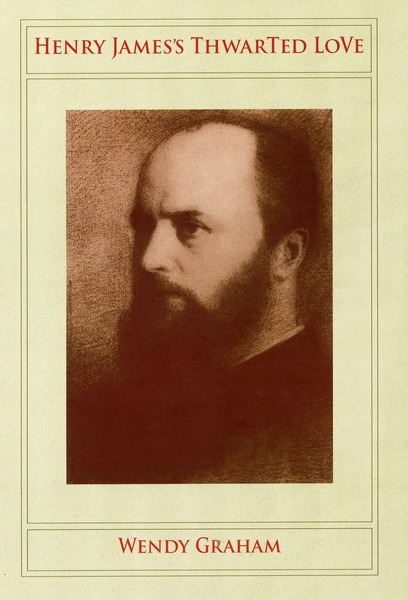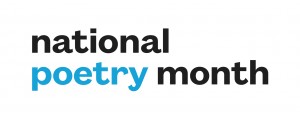If you have gone to the washroom in Main Library lately, you will have noticed the Library Research Services’ monthly newsletter. For poetry month, our research intern, Molly James, interviewed Professor of English Wendy Graham about her research on author Henry James.
What is your current research focusing on? How did you decide on it?
When I finished Henry James’s Thwarted Love, I  realized I did not want to become a cottage industry in Gay studies approaches to James, in other words, typecast. I’ve spent the last 14 years working on a manuscript about the British Pre-Raphaelites. This work focuses on artist collectives, homoeroticism, and fame. The Pre-Raphaelites relied on their friends, and paradoxically their enemies, to drum up interest in their poetry and painting in the Victorian media. I’ve relied on the library’s databases for access to hundreds of periodical and newspaper reviews, published between 1848-1945, to substantiate my argument that scandal was a vehicle for a serious reputation in Victorian cultural circles.
realized I did not want to become a cottage industry in Gay studies approaches to James, in other words, typecast. I’ve spent the last 14 years working on a manuscript about the British Pre-Raphaelites. This work focuses on artist collectives, homoeroticism, and fame. The Pre-Raphaelites relied on their friends, and paradoxically their enemies, to drum up interest in their poetry and painting in the Victorian media. I’ve relied on the library’s databases for access to hundreds of periodical and newspaper reviews, published between 1848-1945, to substantiate my argument that scandal was a vehicle for a serious reputation in Victorian cultural circles.
How did you become interested in Henry James? Why did you write a book on him?
Henry James is the greatest American writer from a stylistic point of view. Whenever I pick up a book to read recreationally, whether Elizabeth Bowen’s The Death of the Heart or Edward St. Aubyn’s Patrick Melrose novels, I invariably find references to Henry James’s craftsmanship. This is less surprising in Virginia Woolf or even Bowen, who’s writing in the 1930s, but Aubyn is writing this minute. Speaking both of the protagonist and, I very much fear, the author, that a drug addled upper class British twit, who was sexually abused by his father, finds James’s prose transfixing is good enough for me.
I’m looking forward to teaching Henry James in my six-week course in the fall.
Which resources do you use for your research and how do you access them? Do you use any of the resources that the Vassar Library offers?
I use databases that provide access to primary sources as well as current scholarly articles. The library used to have more hard copies of 19th-century periodicals, both American and British. I find it useful to browse in actual copies of newspapers and magazines, because advertising and marginalia, the layout of the magazine, and other details provide context that is hard to access in a digital format.
Does your research interests intersect with the courses you teach? If yes, how so?
There is a tricky balance between riding a hobby-horse in class, which can make students feel that their expectations or interests have been sidelined, and showing enthusiasm for research interests that intersect with courses. If I spend time on art in my Victorian literature class or English 170, it is partly because the visual evidence is such a compact and succinct way of delivering a message. For example, when I am trying to explain the Freudian concept “displacement,” I show students René Magritte’s 2 paintings titled Rape, which superimpose a torso on a human face.
April is National Poetry Month. What is a poem that you enjoy, and why?
I am teaching Swinburne this coming week, so I’ll pick one of his poems: “Laus Veneris,” which was inspired by a drawing on the Tannhäuser legend, and then inspired a painting by Edward Burne-Jones. I like the theme of the ‘sister arts’.


 realized I did not want to become a cottage industry in Gay studies approaches to James, in other words, typecast. I’ve spent the last 14 years working on a manuscript about the British Pre-Raphaelites. This work focuses on artist collectives, homoeroticism, and fame. The Pre-Raphaelites relied on their friends, and paradoxically their enemies, to drum up interest in their poetry and painting in the Victorian media. I’ve relied on the library’s databases for access to hundreds of periodical and newspaper reviews, published between 1848-1945, to substantiate my argument that scandal was a vehicle for a serious reputation in Victorian cultural circles.
realized I did not want to become a cottage industry in Gay studies approaches to James, in other words, typecast. I’ve spent the last 14 years working on a manuscript about the British Pre-Raphaelites. This work focuses on artist collectives, homoeroticism, and fame. The Pre-Raphaelites relied on their friends, and paradoxically their enemies, to drum up interest in their poetry and painting in the Victorian media. I’ve relied on the library’s databases for access to hundreds of periodical and newspaper reviews, published between 1848-1945, to substantiate my argument that scandal was a vehicle for a serious reputation in Victorian cultural circles.